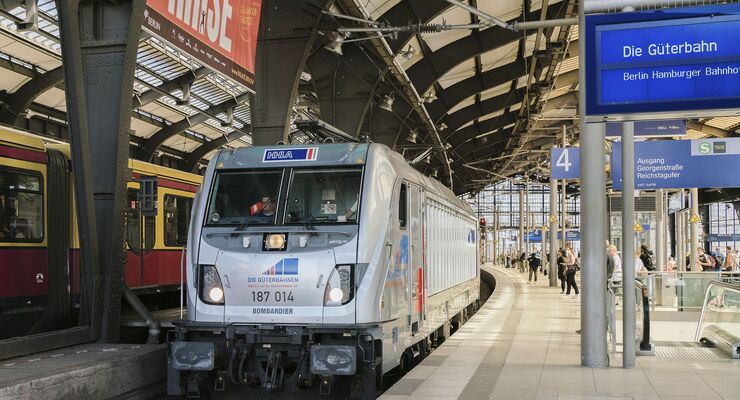Freight railways join forces - Easily 25 percent rail transport 23/05/22
< Back to list
Freight railways join forcesEasily 25 percent rail transport
 Photo: NEE
Photo: NEEBy 2030, the private freight railways want to handle a quarter of all goods transport in Germany by rail. But this is not possible without the long-promised support of politicians.
Concentrated traction: 35 percent by 2035
Burdening the environment even more
Rail potential is not being exploited
Huge Service problems at DB
This also applies to their customers from the logistics industry, and their interest in the railway is great. "Everyone wants to go by train to improve their CO2 balance," says the head of a forwarding company with over 6,000 employees. "But there are service problems at DB that are simply incomprehensible. Our employees are now completely desperate." Among other things, there is an enormous lack of construction site management. It is good that construction is taking place, but it happens again and again, for example, that the main and alternative routes are closed at the same time, is criticized. Across borders, there is a forti place a lack of coordination.





